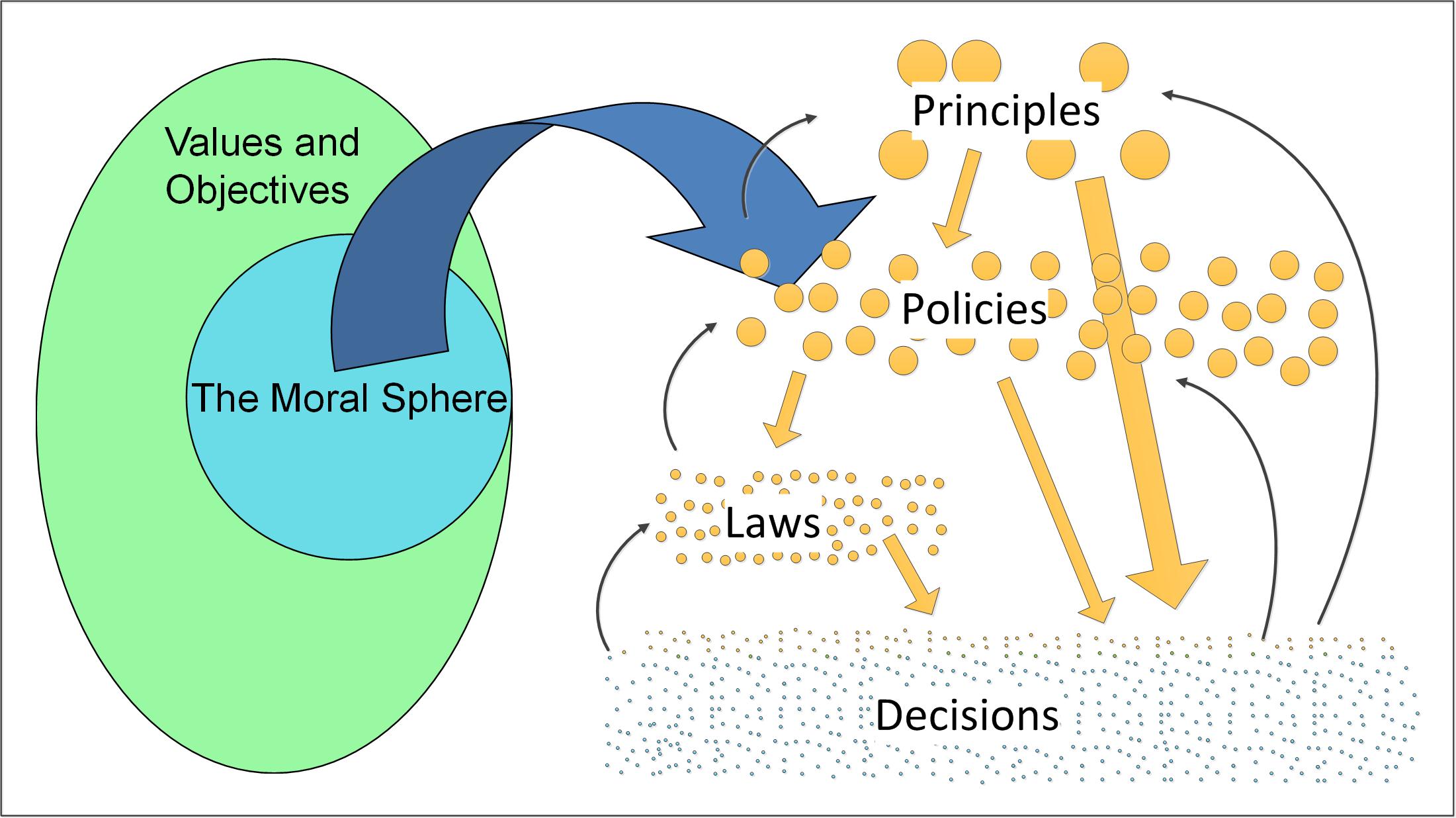The Evolutionary Model of Morality
Moral guidance is a subset of all the guidance that mankind uses. What is true of all guidance is true of moral guidance and all guidance
is the result of an evolutionary process.
The diagram below shows how morals evolve at a point where there is agreement on a particular set of values and objectives that are considered
to be a moral sphere. The reality is that, at a higher level, the values and objectives are also evolving based on many factors such as:
These are all constantly changing though not at the same rate. In particular, human nature has been changing so slowly that it is usually
thought of as a constant.

At the top level of the guidance hierarchy are what could be called principles, which are brief statements with very wide scope such as
"Do as you would be done by" (The Golden Rule). These can be applied directly to our day to day decisions but can also be applied to
classes of moral decision that are important enough to require rather more specific and detailed guidance - policies. Society will find
reasons to be even more specific about some of these classes and elaborate the policies into highly specific laws. Our day to day
decisions, then, may be guided by Laws, Policies and Principles. Feedback on the usefulness of Decisions, Laws and Policies can help
to improve the higher levels of guidance. The process is, predominantly, one of ongoing bottom up renewal and top down codification.
It should be noted that the process is very generic and might be equally valid, for instance, as a starting point for managing the
guidance that a large engineering company gives to its field operatives to help them make dozens of "engineering" decisions every
working day. In such cases, no one is embarrassed by the fact that the guidance evolves. It is an inescapable requirement in order
to keep pace with change and to survive. It should also be noted that the process does not guarantee the quality or desirability
of the guidance this is a separate issue.
A major source of distraction from cooperative moral development are the arguments that arise about the nature of moral codes.
Some people will claim that their morals are absolute, unchangeable and unchallengeable, either because they are god-given
(e.g. most religions) or in some way have an existence independent of mankind and are out there to be discovered (e.g. Plato's forms).
There are some who will claim that man-made morals are "relative" and constantly changing according to whatever is convenient, if not
with the weather. They fail to recognise, for instance, that the Golden Rule does not have religious origins and has been known from
much earlier times than any of today's major religions no doubt because, so far, the nature of mankind is changing imperceptibly.
Papers discussing this issue can be found in Position Papers.